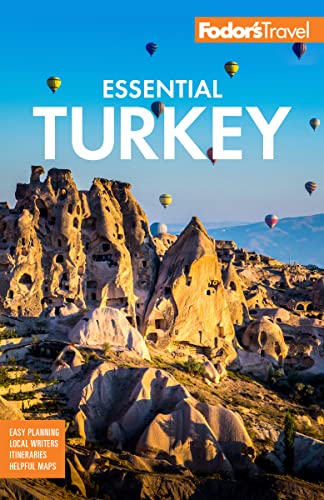War and Peace
The Dardanelles have provided the world with many myths and heroes, romances and tragedies. The most recent, and the main reason that the region draws visitors today, was the Gallipoli campaign in World War I. In this offensive, Britain (with soldiers from Australia and New Zealand, then still British colonies) and France tried to breach Çanakkale's defenses in a campaign devised by the young Winston Churchill, at the time First Lord of the Admiralty. The goal was to capture Istanbul, control the entire waterway from the Aegean to the Black Sea, open up a supply channel to Russia, and pave the way for an attack on Germany from the south. After nine months of bloody fighting that left as many as 50,000 Allied and perhaps twice as many Turks dead, the Allies admitted defeat and evacuated, beaten by the superior strategy of Lieutenant-Colonel Mustafa Kemal—later called Atatürk.
Churchill lost his job as a result of the failure in the Dardanelles, and his career suffered until the next world war, two decades later. Mustafa Kemal, on the other hand, became a national hero. He had been an insignificant lieutenant, unpopular among the ruling Committee of Union and Progress, but the fame he earned in this war helped him start and lead the War of Independence against the occupying Allies. Soon his enemies were overthrown, and so were the Ottoman sultanate and caliphate. A few years after the Gallipoli campaign, the modern, secular republic of Turkey emerged with Atatürk as president.
For Australians and New Zealanders, World War I was their first real experience of war overseas, and the shocking losses they sustained left an indelible mark. For the Turks, it was an unexpected defensive victory. It was a war of pride, but also one that left behind many stories of kindness between soldiers on opposing sides. The Anzacs and the Turks came from opposite ends of the earth: there was no history of hostility, or even familiarity, between them, until they were told to kill one another, but in some ways the war marked the start of a friendship, and thousands of Anzac pilgrims come to visit the battlefields every spring. Atatürk's speech, engraved on a Turkish monument in Anzac Cove, seemed to foresee this:
"Those heroes that shed their blood and lost their lives! You are now lying in the soil of a friendly country, therefore rest in peace. There is no difference between the Johnnies and the Mehmets to us, where they lie side by side here in this country of ours. You, the mothers who sent their sons from far-away countries, wipe away your tears. Your sons are now lying in our bosom, and are at peace. After having lost their lives on this land, they have become our sons as well."




